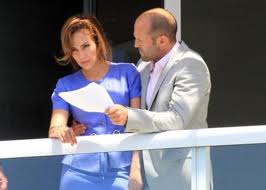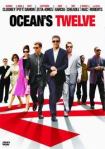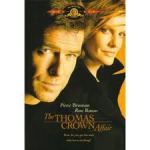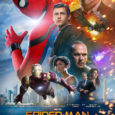 1967’s Point Blank with Lee Marvin was the first attempt. Then came Mel Gibson’s Payback in 1999–a better film, closer in energy to the novels, but still heavily watered down, with wild inconsistencies in tone, mainly stemming from the need to make Gibson’s character likable. Now we have remake number tres, starring The Transporter and an American Idol judge.
1967’s Point Blank with Lee Marvin was the first attempt. Then came Mel Gibson’s Payback in 1999–a better film, closer in energy to the novels, but still heavily watered down, with wild inconsistencies in tone, mainly stemming from the need to make Gibson’s character likable. Now we have remake number tres, starring The Transporter and an American Idol judge.
Sigh.
Starting in the 1960’s, under pen name Richard Stark, author Donald Westlake created some of the most compelling and brutal pieces of noir fiction ever, centered around a career criminal with the singular name of Parker. Westlake’s Parker wasn’t a suave thief who knocked over casinos with the help of dozens of friends and access to technology that was only a black spray paint job away from getting a place on Batman’s utility belt. He didn’t race cars with Vin Diesel. He didn’t dream of One Last Score that would allow him to retire in some little Mediterranean town and putter around with old boats or run a quaint little night club.
He robbed a shitload of people, and cut swaths of destruction across the countryside in the process, and never had any intention of stopping. He was smart but coarse, loyal to those he worked with only out of necessity, and not the least bit romantic or elegant. He was a killer, and not of just bad guys. He wasn’t uppercase EVIL: he didn’t rape or torture, or take any pleasure in killing. But he was definitely a villain.
And he was also fascinating, and a worthy character to spend over 20 books exploring. This is because Donald Westlake understood that noir is not the same as nihilism, that great art doesn’t need morally great characters to be compelling, and because of that he could make the reader interested in Parker without ever wanting to be Parker, or even be anywhere near him.
In short, everything that the makers of 2013’s Parker are clueless on.
Maybe that’s unfair, since I haven’t seen the finished product. But there are two very damning pieces of evidence that suggest this movie will have highly developed mouth and throat muscles, no gag reflex, and a very practiced up-and-down rhythm.
The first is the summary and the stand-in tag line on its IMDb page:
“When Parker turns down a job offer to pull off a jewel heist, he narrowly escapes with his life. He then teams up with a female real estate agent who is familiar with the local town and has nothing to lose to find the target of the heist so they can steal the loot for themselves.”
And:
“A thief lives by a code of honor that includes never stealing money from people who need it.”
Yikes. And the second is this:

He looks like the owner of a used car lot in one of those local access commercials. The only things missing are the balloons, flood lights, and the sad little tranquilized pony for the kids to pester.
Let’s start with the tag “A thief lives by a code of honor that includes never stealing money from people who need it.”
No. No he doesn’t. He steals from everybody. In one of the earliest books, Parker and his crew rob an entire town. It’s a little community spread out across a valley with only one road in and out, centered around a mining facility. They blockade the road one night, then take over the police department, the fire department, the phone company (more important in the 1960’s, when you had one national phone line per town and actually knew the operator by name), and the security at the mine, then proceed to take the payroll from the miners and loot the cash from every single store on main street. During the process, things go awry and the entire town BURNS TO THE FUCKING GROUND.
This is not Robin Hood, stealing from some mustache-twirling Wall Streeters and buying iPads for orphans. Parker and his ilk don’t look out for the little guy. They rob the little guy, and burn the little guy’s home.
The perspective frequently jumps from the robbers to the various citizens of Smalltown USA who get caught up in the proceedings. You become fascinated by the heist itself, but when you’re in the head of an innocent character you hope and pray he/she makes it out alive. Getting a viewpoint from someone not involved in the heist is a staple in the Parker novels, everything from a major character who happens to be on the opposite side, to a four-page chapter from the point of view of a bystander who might be oblivious to the carnage going on around him/her. It’s this variety of input, combined with the chance to watch the robbers’ actions and consequences ripple out into the rest of society, that makes Parker and his world so compelling.
But he’s not compelling because he steals some rich guy’s stock portfolio and sends ten percent to Doctors Without Borders. Criminals are criminals. They buy whores and cocaine with their proceeds, and then they go out to Chili’s and only leave a 15% tip.
IMDb also mentions a “jewel heist.” God. Is there anything more boring and go-to than the Hollywood idea of a jewelry theft? One book in the Parker series DOES have something like that, but they only get hired to steal some diamonds from a collapsing third-world treasury in order to screw with the country. They get paid to rip some people off, but they don’t actually try to sell the diamonds.
This is because it’s really a stupid thing to do. Valuable gems are expensive gems, and that means you have to actually sell them to somebody with:
A) A lot of money
B) An appreciation of their value
C) No interest in where they came from
D) No interest in ever showing them to anybody else
In the movies, there’s always some guy who collects priceless art and artifacts in a secret underground chamber beneath his mansion, with museum-quality displays and lighting. In the real world I think you have to try to sell stolen diamonds back to De Beers or something.

Or here. Coming up, we’ve got a twenty pound sack of diamonds, with a bloody hand print on the side and a collector’s edition safety deposit tag partially torn off…
Westlake’s Parker almost always went after cash. He robbed payrolls, armored cars, race tracks, other criminals, etc. In the later years, when currency became scarcer, they had to pick their targets with more care, but they still went primarily after cash, like the box office receipts from a rock concert, and once a televangelist show. There was a high veneer of authenticity to these actions, since-as most petty criminals find out in the real world–the only real thing of guaranteed value to steal is money.
But a jewel/art thief is just Hollywood stand-in for “harmless,” or somebody with an easy arc for redemption.
Parker is not a redemptive character. In his first novel The Hunter, there’s a scene where he needs to stake out a particular location in New York, so he goes across the street, breaks into a shop with an apartment over it, knocks out the woman who lives there and gags her, then sets up surveillance out her window. He comes down a few hours later and finds her dead–his punch broke her nose, and combined with the gag in her mouth she suffocated.
Parker’s response? He’s angry at the stupidity of the whole thing, that something as simple as a broken nose could kill someone. And he’s angry that there’s a dead body he doesn’t have time to dispose of, something that prevents him from using the store for further surveillance. And that’s it. He never feels remorse for the dead woman, never wonders about her life. He never even thinks about her again for the rest of the series.
Prior to this scene, the reader has been mostly in Parker’s corner. He starts the novel by walking across the George Washington bridge into the city, with a rumpled suit and holes in his shoes, then steals thousands of dollars and goes on the warpath, taking revenge on the wife and former partner who tried to kill him, and taking down a criminal empire piece by piece. He’s like a western anti-hero, somebody strong but fair, hardboiled but still retaining some kind of honor deep below.
Then he kills the woman, and feels nothing, and you realize that he’s just an animal. Smart and capable, but not really human. Further novels expound on this in very subtle ways, never being didactic or on the nose with the moralizing. You realize that Parker is like a lion–he doesn’t kill out of enjoyment, but he kills prey for food, and other lions to protect his resources, and does it with the same ease that normal people swat a mosquito. Parker doesn’t kill only as a last resort. He kills if it’s the only way to get what he wants. Anybody that stands in his way is just like one of those antelope/elk/antlered things that lions eat.
He is not Martin Lawrence in Blue Streak, with Statham-level martial arts thrown in for good measure.
Jason Statham is the other problem with the upcoming Parker. And not really Statham himself–who is fucking awesome–but with how the film is going to use him. As much as I want to believe otherwise, I know that they’re going to mold the film around his action-movie brand, rather than mine his cold, threatening persona and use it to craft something closer to Westlake’s villain. I really think he has the right kind of intensity for the role, but they’d have to avoid the temptation to have any kind of lengthy fight scenes, and I know that’s not happening.
I love Statham action movies. But Parker is as far from a brawler as possible. In one scene in Comeback, Parker is trapped in an office with a couple of guys who have just figured out he’s not who he says he is. So he pulls out an empty desk drawer and starts wailing on them, then leaves. It’s intense and brutal and ugly, just like Parker himself.
What Parker wouldn’t do is say, in an East London accent, “ello there, gov’na. Ahm Parkah. Wut say you sin’ this lit’ul birdie a son’, uh?” And then his shirt gets ripped off and he slides through the oil-drenched floor of a warehouse and he fights off 30 stunt men in a highly choreographed sequence that involves steel beams, roller skates, and severed power lines that are turned into a makeshift stun gun.
Anyway. All of the Parker novels are available on Kindle, and most weigh in around 140-200 pages, so they’re the perfect size for one sitting. They’re from the last era of mass-consumed pulp fiction, where, as Westlake said of his own publisher, the crime novels were cranked out by the same people who printed cook books. All of the original paperback covers–and even most of the titles–are uniformly cheesy, but within those pages are some incredibly paced, wildly inventive thrillers with a fast and sparse prose that earned Westlake the title of Grand Master from the Mystery Writers of America. Read them. Dickens was a pulp writer too. So was Bill Shakespeare.






















Swaw72@yahoo.comThe new Parker film is actually the EIGTH adaption of the Richard Stark/Donald Westlake character. The Lee Marvin was the second “Parker” film and Mel Gibson’s was the seventh. Though, none of the characters is ever named “Parker.”
The Hunter was the basis of Point Break with Lee and Payback with Mel.
True, I didn’t mention those other films because they really just used a piece of the plots from some of the novels, but didn’t actually attempt to bring the Parker character to the screen, in name or in mannerism. Made in U.S.A., the Jean-Luc Godard film is one example, where “Parker” is played by a woman, and is a reporter, not a robber, which has absolutely nothing to do with the novel The Jugger, which it loosely took plot points from. I liked Robert Duvall in The Outfit though. Just wasn’t a Parker movie.
Isn’t the latest film also NOT specifically based on a Parker novel? From what I understand, no specific source was mentioned just that this would possibly be a series of movies. The reason none of the previous films were able to use the name Parker, even the Mel Gibson film in which he was re-named Porter, was because Westlake/Stark didn’t want the name used unless it were for a series of films.
Yeah, as far as I know they aren’t using anything specific from a Parker novel. It just seems like, whereas those other films took the plots from the books but completely jettisoned Parker in favor of a more likable character, this movie would be different as it’s actually named “Parker,” and the fact that it isn’t borrowing a plot from the books made me think they were looking to explore the character itself, and what a complete bastard he is. Which isn’t true, if the IMDb summary of a “virtuous” thief is correct. But yeah, that entry might just be from the hollows of teh interwebs. If Statham turns out to be a genuine Parker that will be awesome.
Agreed. I’m hoping this film went through the same type of scrutiny that past adaptions did. The Darwyn Cooke graphic novels were able to bear the Parker name and those are gorgeous adaptions.
Hoping “virtuous” was just pulled out like you said. The only thing I can remember likeable about Parker was that he didn’t make any excuses for his own behavior. He was, in many ways, the first anti-hero. The Mel Gibson film, Payback, did a decent job at exploring that – but not in the theatrical release but in the “Straight Up” Director’s Cut.
Jason Statham, though a lot of people dislike him, he will bring viewers in to see the film.